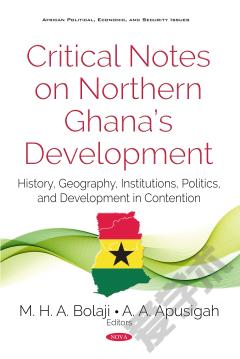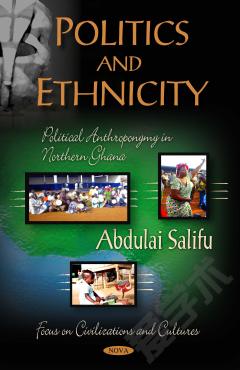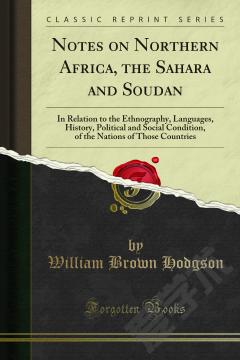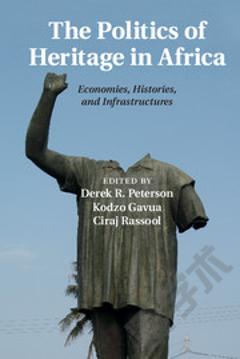Critical Notes on Northern Ghana’s Development: History, Geography, Politics and Development in Contention
his is an edited book whose themes address the myriad of social, economic, political, cultural, and religious problems that analysts attribute to northern Ghana’s under-development. This collection of 15 chapters – including the introductory and concluding chapters – is written by seasoned academics, researchers, practitioners, and professors. The book consists of three parts: Northern Ghana’s Under-Development and Northerners’ Complicity; Chieftaincy, Conflicts and Peace-Building; and Policy, Politics, and Social Development. While the book deals with the complex subjects of northern Ghana’s under-development, its analyses are cutting-edge and down-to-earth. This collection presents the political, economic, legal, religious, governance, social issues that are at the heart of northern Ghana’s development. Where the arguments need graphic illustration, the authors have painstakingly provided diagrams, tables, and figures. Of interest to this collection is that although the contributing authors present their various explanations and ideas on this aspect of the research on northern Ghana’s development, they give readers the prime place of making sense of the subject for themselves. The writing styles that the contributing authors adopt are engaging and thrilling. Besides that the chapters are well documented to meet the accepted scholarly conventions, the language is lucid and straightforward. While the contributing authors come from diverse scholarly backgrounds, the editors have tried to reduce the variations in presentation and style to aid easy comprehension. The issue of northern Ghana’s under-development has not only been topical, but it has also been a concern to many Ghanaian politicians, scholars, and development partners. As part of understanding the nature and context of northern Ghana, government, non-governmental organizations and development need scholarly research to back the oftentimes programmatic research conducted. Such programmatic research such as baselines, situational assessments, and rapid appraisal although they have their own merit in generating data for development interventions, they have tended to lack a comprehensive understanding of the northern situation. Even for such programmatic assessments, some academic studies are necessary for grounding the analyses. Yet, such studies are often scanty and/or partial in tackling the northern Ghana question. This book fills that gap. Its interdisciplinary and multidisciplinary theme is of particular appeal to students of history, politics, geography, development studies, ethnic and conflict studies, and legal studies, among others.
{{comment.content}}








 京公网安备 11010802027623号
京公网安备 11010802027623号